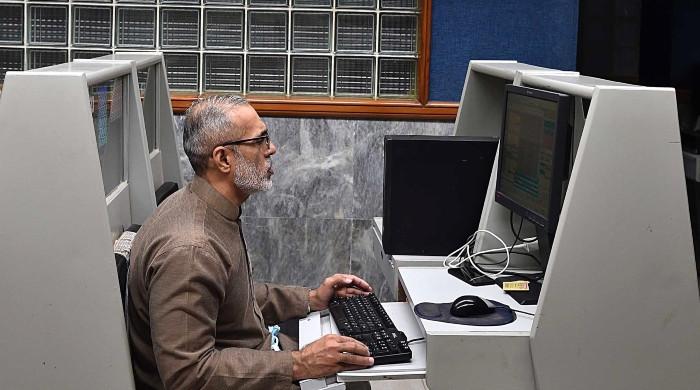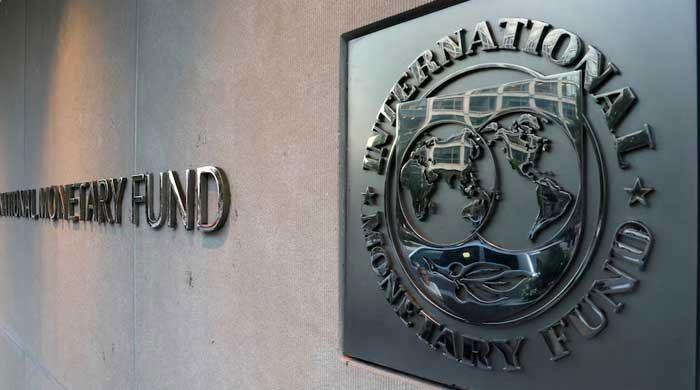Rupee continues to falter against dollar
Economic experts say pressure on rupee will continue till IMF board's approval
August 25, 2022

KARACHI: The Pakistani rupee continued to erode against the US dollar on Thursday ahead of the International Monetary Fund's (IMF) executive board meeting on August 29 in Washington.
In the interbank market, the local unit closed at 219.41 after losing 0.47 against the dollar, up from yesterday's close of 218.38.
n the interbank market, the local unit closed at 219.41 after losing 0.47 against the dollar
Economic experts have said that the pressure on the rupee will continue till the IMF board's approval of disbursing the $1.17 billion tranche for Pakistan.
In an interview with Bloomberg TV, State Bank of Pakistan Acting Governor Murtaza Syed said that Pakistan is likely to receive a $1.17 billion loan tranche from the IMF within six days after the Executive Board’s approval.
The acting governor said that the country’s forex reserves will shore up to $16 billion by the end of the current fiscal year 2022-23 which dropped to $8 billion due to delay in the revival of the IMF agreement and external flows.
Once Pakistan gets the loan from the IMF, experts are predicting that the country will get additional funds from multilateral and bilateral organisations — giving a further boost to the depleting forex reserves.
Apart from the pressure of the IMF, the government has also lifted the months-long ban on the import of luxury items and the exports have not increased at desired pace — resulting in pressure on the rupee.
Moreover, the UAE has made it mandatory for Pakistani travellers to declare 5,000 dirhams at the airport when landing — leading to an increase in the price of the US dollar in the open market.
Economist and former adviser to the federal ministry of finance Dr Khaqan Hassan Najeeb said the rupee is slipping not only because of the dollar's global strengthening but also due to recent political developments — causing jitters in the market.
He also cited depleting foreign reserves held by the State Bank of Pakistan (SBP) as a reason for the fall. Forex reserves stand at $7.8 billion — hardly enough for over a month of imports.
Exchange Companies Association of Pakistan (ECAP) General-Secretary Zafar Paracha told Arab News that the local unit's fall — among other reasons — was due to its smuggling to Afghanistan, where sellers get higher rates.











